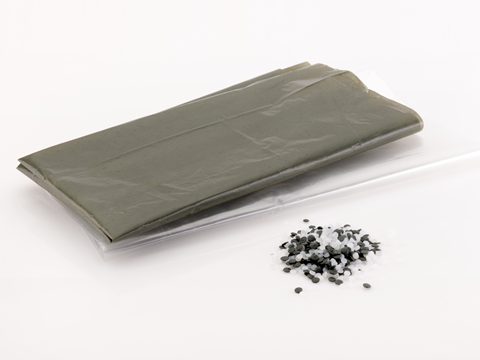
RWTH Aachen University’s Institute for Plastics Processing in Industry and Craft (IKV) has announced an industrial research project aspiring to combine the best recycling technologies available and boost LDPE recyclate quality in mechanical recycling processes.
The upcoming Packaging and Packaging Waste Regulation will lay out mandates for the minimum percentage of recycled content required in new plastic packaging. IKV believes that, in order to achieve these goals, a ‘significant increase’ in the percentage of recyclate in contact-sensitive applications, such as food and cosmetics packaging, is necessary.
Reportedly, recyclate produced via chemical recycling meets the quality requirements for such applications, but demand currently outweighs the available capacities. Mechanical recycling, on the other hand, is described as the ‘most energy and material-efficient plastics recycling process’ and can provide the required quantities, but not the necessary quality.
The ‘LOOPCYCLING – Advanced mechanical recycling of flexible polyethylenes’ project intends to solve this problem. It aims to achieve the best recyclate qualities possible and ‘push the boundaries of mechanical recycling significantly’ by considering the entire mechanical recycling process chain – sorting, shredding, washing, deinking, compounding with stabilizers, decontamination, and odour removal, alongside the characterization of recyclates, reprocessing, and reuse.
The project will begin by optimizing common polyolefin sorting fractions (DSD310) sourced from household collection processes. At the same time, it plans to conduct a transfer to well-designed mono-materials, including upscaling, and lay the groundwork for future design-for-recycling standards.
Industrial technology suppliers like sorting system manufacturers, deinking technology providers, manufacturers of recycling systems, materials and additives, and decontamination technology providers are currently involved in the consortium. Their task is to ensure that the system and technologies involved are currently operational on an industrial scale.
IKV will coordinate the project, conduct compounding trials, reprocess tests in its pilot plants and laboratories, and offer expertise in recyclate characterization.
Expected to operate without public funding, LOOPCYCLING builds upon findings from previous projects – some of which were publicly funded – and is set to run for two years, starting in January 2025.
Any recyclers, recyclate processors, packaging manufacturers, brand owners, and retailers interested in the project are invited to a separate kick-off event on 10 September 2024 at IKV in Aachen.
In other news, Maria Vera-Duran, project manager at European Recycling Industries’ Confederation (EuRIC), spoke at last year’s Sustainable Packaging Summit about the EU-funded CIMPA project, which sought to develop the first value chain for the recycling of multilayer plastics from the food industry and agriculture. She discussed mechanical and physical recycling, upgrading solutions, and more.
APK AG has also scaled its proprietary Newcycling technology – a combination of mechanical pre-treatment steps and solvent-based purification and separation processes – in a bid to recycle flexible, multi-material packaging waste and obtain high-quality, pure recyclates.
If you liked this story, you might also enjoy:
How are the top brands progressing on packaging sustainability?
Sustainable Innovation Report 2024: Current trends and future priorities
Reuse vs. single use – which is better for the environment?
The ultimate guide to global plastic sustainability regulation














No comments yet